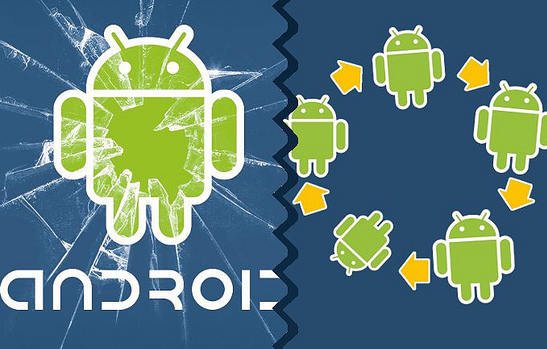Android fragmentation has drawn an enormous amount of discussion, much of it critical. But is it a bug, a feature, or a little bit of both?
For developers, the proliferation of Android variations can be a headache. A developer can’t be sure that an Android app will work on devices other than the one for which it was developed. Consumers also can’t be quite sure that their favorite apps will work on a new device. On the other hand, consumers have a lot of Android devices to choose from, and developers are free to optimize Android to meet their specific needs.
A Multitude of Flavors to Choose From
As Dara Kerr reports at CNET, a recent study by app developer Open Signal found exactly 11,868 different devices that ran Android. By now, this figure has probably grown.
And just to put things in context, this is about a thousand times as many devices as run Android’s leading rival, Apple’s iOS mobile operating system. The latter runs, by intent, only on a handful of models – the iPhone and iPad.
Because Android is an open-source technology, it is freely available for use with many devices. Developers are free to tweak it in order to optimize it or simply to brand it with their own identity.
The Good News and the Bad News
The upside of Android fragmentation is the OS’ variety and flexibility. If you want iOS, you have to accept Apple’s vision and control. If you want Android, you don’t have to accept Google’s vision: You are free to substitute any available vendor’s vision – or, if you are a developer, your own vision.
As Open Signal notes, “for consumers, extreme fragmentation means that they can get exactly the phone they want — big or small, cheap or expensive, with any number of different feature combinations.”
The downside is that there is no one single Android standard that either developers or individual users can entirely count on. The enterprise security community, in particular, is less than happy about this state of affairs. Security specialists are therefore leading critics of Android fragmentation.
Google itself has pushed back against fragmentation by emphasizing the Android iteration known as Jelly Bean and providing code that allows older devices to support newer Android features. But Google’s basic decision to offer an open technology was intended to favor wider adoption of the mobile Internet. Android has served that purpose very well, yet fragmentation is an inevitable part of that package. This arguably makes Android fragmentation both a bug and a feature.
Image courtesy of Flickr
[cf]skyword_tracking_tag[/cf]

